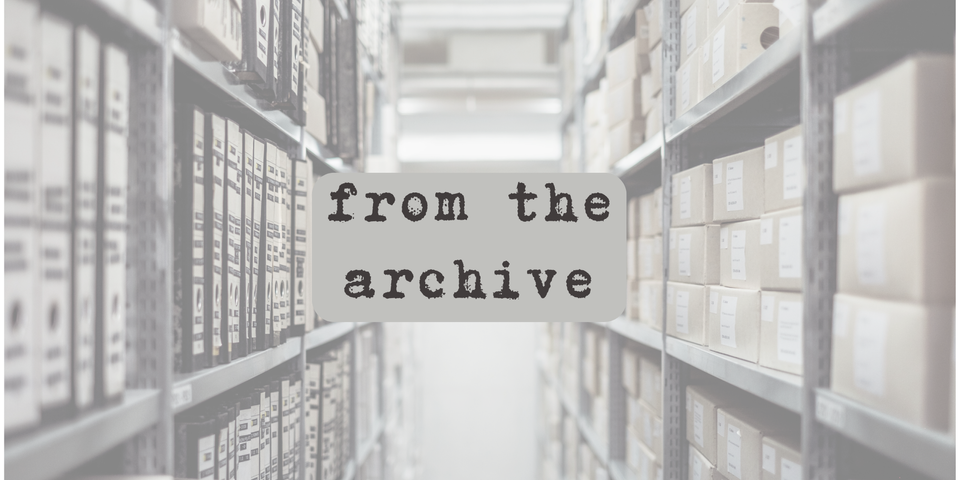The real barriers to work

[First published June 25, 2023 on my previous Patreon]
For disabled people who want to work, the barriers so many of us face are everywhere. Yet removing those barriers often seems to be the last item on the agenda.
As we start down the disability employment reform path again, and in the lead up to the release of the Employment White Paper, what will it take to actually listen to disabled people, and then actually do what we tell you will work?
[When it comes to employment, not all disabled and sick folks can or want to work, and that is fine. They also must have a dignified amount of income to live on, and the support and services they need.]
Not the ideal worker
‘No, you can’t work part time’
‘No, working from home is impossible’
‘No, there’s no flexibility in this work’
‘You can’t ever work in journalism because you are disabled’
‘Get into the kitchen, we can’t have someone who looks like you front of house’
‘I’ve taken away your responsibilities because you are disabled’
‘You can’t be a manager because you are disabled’
Every one of these statements has been said about me, at work, while doing my training, in the middle of a shift, in a meeting. Every single disabled person has the same collection of cutting phrases, collected over a lifetime of being told that we don’t belong, that work won’t shift a tiny bit to make room for us, that we aren’t wanted.
At the same time, stories abound about lazy disabled people, refusing to work, or pretending to be disabled so they can live a luxurious life on income support.
Rarely do we talk about the refusal of employers to shift the notion of the ideal worker enough to make room for disabled people.
What are the barriers to work?
The first, and key barrier, to work is being too sick and disabled to work, or at least to work much at all. For over a decade, I worked 7-15 hours a week with the Disability Support Pension (DSP) topping up my income. Because I got some DSP, I also got the essential concessions that made my health care even remotely affordable. I had employers who were let me work from home, or to work a few hours a day, or both. I had the flexibility around attending hospital, and the time off to be an inpatient as needed.
What I didn’t have was anything like the same kinds of work experiences that my non-disabled peers had. I was marginalised in the world of work, existing on the edges of workplaces, my needs barely tolerated, not embraced. I lived barely above the poverty line for close to 15 years.
When new drugs were invented, and I finally found one that worked for me, I could start to think again about full time work, which I did. But I very quickly crashed back into a world of work with no room for disabled people, no space for my ongoing medical appointments, no time for my pain and fatigue, no value seen for my disabled self.
The Australian Human Rights Commission lists nine barriers to getting a job, starting with discrimination and including refusing adjustments and accommodations by employers.
I’ll add to that pile the very real barriers that exist in the very systems that are meant to support us. Income support, disability employment services, and now the NDIS all act as barriers to equal employment, as well as the broken disability discrimination system.
Barriers exist also for particular disabled people, including intersections of racism and ableism. There are also specific barriers for people with an intellectual disability that lead to so many folks earning subminimum wages, or not in work at all.
But when we talk about employment for disabled people, and people pontificate about how we can ‘solve the problem’, these barriers melt away from view.
Talking about the real barriers
The core issue is a lack of acknowledgment of what the actual barriers are. One in particular that every single disabled person I know has experience with is the refusal of employers to make even minor adjustments to a job or workplace that would make it accessible.
Despite this, there is a weird statistic that keeps getting shared about from the Disability Royal Commission, to the Jobs and Skills summit last year.
“Most employed (88% or 684,000) and unemployed (82% or 92,000) working-age people with disability do not require specific arrangements from their employer to work.”
Even Minister Rishworth shared this recently. Replies to that tweet expressed the same level of incredulity that I have reading this stat which doesn’t make sense to me, even thinking about non-disabled people at work. Lots of folks need adjustments to do our jobs, and disabled people more than others. So where does this statistic come from, and is it accurate? And more importantly, why is this being used and what does it say about any hope for getting serious about the barriers we face at work?
Where did the statistic come from?
I tracked this statistic down to the compendium kept by the Australian Institute of Health and Welfare, originally from the Australian Bureau of Statistics’ (ABS) 2018 Survey of Disability, Ageing and Carers (SDAC).
Digging a bit deeper into the statistics show that there were a very limited number of questions asked, and that this one measure is at odds with other more concerning statistics, such as:
“Many (68% or 1.4 million) working-age people with disability have one or more employment restrictions. Of those, the most common types are:
- restricted in type of job (51% or 710,000)
- difficulty changing jobs or getting a preferred job (42% or 587,000)
- permanently unable to work because of condition(s) (37% or 515,000)
- restricted in number of hours (35% or 482,000)
- need for time off work (23% or 327,000) (ABS 2019).”
So most working age disabled people have an employment restriction, but don’t report needing specific arrangements? This doesn’t make sense.
I contacted the ABS, and they clarified that yes, they only ask about the following employment restrictions and that is what is reported in the statistic that started all this:
- ‘special equipment or modified buildings/fittings, or to be provided special/free transport or parking
- A special support person to assist or train them on the job or to be provided help from someone at work, or to be provided training/retraining
- To be allocated different duties’
So other workplace changes, such as flexible work, work from home, part-time work or extra leave aren’t picked up by this survey question, leaving us back with this misleading statistic that disabled people don’t need any adjustments at work.
This also leaves out all the disabled people who can’t work, and those who can only do some kinds of work.
This isn’t helpful for anyone - not for disabled people looking for work, or those of us in work, or even for employers thinking of hiring us. This kind of misguided attempt to make employing us seem less scary is actually going to make things harder for many of us, particularly when we ask for the adjustments we need.
So is there any sign that there will be attention on making sure we can get the adjustments we need at work, free from discrimination? Nope.
Smash the barriers
The constant focus on fixing disabled people, and employers, through pilots and programs, misses the structural barriers that exist and can’t be removed by individual efforts.
Disabled people are some of the toughest, most innovative problem solvers I know, but none of that matters one bit if there is no accessible transport to get to work, or the workplace isn’t accessible, or your boss won’t agree to your reasonable adjustments, or you can’t get funding for employment support or equipment, or you can’t afford to live near employment.
They won’t fix the discrimination we experience, or the loss of essential health concessions, or the lack of secure work, or decent part-time work.
Where are the pilots or programs to fix any of this? Where is the reform to the Disability Discrimination Act so it actually works to stop discrimination? Where is the work to model employment in the public sector?
And because it is me writing this, where are the measures to force change? Where are the imposition of quotas for all disability employment services and NDIS disability providers? Billions are being made by non-disabled people out of us, so where is the plan to ensure we get a slice of that?
We don’t need another round of consultation about what needs to change to smash down the barriers to work. What we need is more listening to disabled people and action to get real change.
